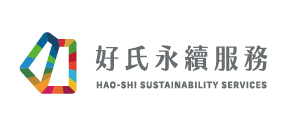Strengthen the means of implementation and revitalize the global partnership for sustainable development
強化永續發展執行方法及活化永續發展全球夥伴關係
17.1
強化國內資源動員,包括透過向開發中國家提供國際支援,改善其國內稅收、和其他收益取得能力
Strengthen domestic resource mobilization, including through international support to developing countries, to improve domestic capacity for tax and other revenue collection
17.2
已開發國家充分履行其官方發展援助承諾,包括向開發中國家提供國民所得毛額(GNI)中的0.7%作為政府開發援助(ODA),以及向最低度開發國家(以下簡稱LDCs)提供國民所得毛額中的0.15至0.2%為開發援助。鼓勵開發援助提供方設定目標,提供佔國民所得毛額至少0.2%的開發援助給LDCs
Developed countries to implement fully their official development assistance commitments, including the commitment by many developed countries to achieve the target of 0.7 per cent of ODA/GNI to developing countries and 0.15 to 0.20 per cent of ODA/GNI to least developed countries; ODA providers are encouraged to consider setting a target to provide at least 0.20 per cent of ODA/GNI to least developed countries
17.3
為開發中國家多方籌集額外的財務資源
Mobilize additional financial resources for developing countries from multiple sources
17.4
透過政策協調,酌情推動債務融資、債務減免和債務重整,協助開發中國家實現長期債務永續性,並處理高負債貧窮國家的外部負債,以減輕其負債壓力
Assist developing countries in attaining long-term debt sustainability through coordinated policies aimed at fostering debt financing, debt relief and debt restructuring, as appropriate, and address the external debt of highly indebted poor countries to reduce debt distress
17.5
為LDCs採用及實施投資促進方案
Adopt and implement investment promotion regimes for least developed countries
17.6
加強在科學、技術和創新領域的南-北、南-南、三角形區域與國際合作,以及強化依照相互議定條件提高知識交流,作法包括改善現有機制之間的協調(特別在聯合國層級),以及透過全球技術促進機制加強協調。
Enhance North-South, South-South and triangular regional and international cooperation on and access to science, technology and innovation and enhance knowledge sharing on mutually agreed terms, including through improved coordination among existing mechanisms, in particular at the United Nations level, and through a global technology facilitation mechanism
17.7
按照共同議定原則,使用有利的條款和條件,包括特許權和優惠條款,針對開發中國家促進環保科技的發展、轉移、流通及擴散
Promote the development, transfer, dissemination and diffusion of environmentally sound technologies to developing countries on favourable terms, including on concessional and preferential terms, as mutually agreed
17.8
2017年前,全面落實開發LDCs的技術庫,建立科學、科技與創新能力培養機制,並擴大其科技使用,尤其是資訊傳播科技(ICT)
Fully operationalize the technology bank and science, technology and innovation capacity-building mechanism for least developed countries by 2017 and enhance the use of enabling technology, in particular information and communications technology
17.9
強化國際支持,為開發中國家實施有效且鎖定目標的能力培養,以支持各國落實各項永續發展目標的國家計畫,包括南-北、南-南和三方合作
Enhance international support for implementing effective and targeted capacity-building in developing countries to support national plans to implement all the Sustainable Development Goals, including through North-South, South-South and triangular cooperation
17.10
在世界貿易組織(WTO)下,建立一個全球性、遵循規則、開放、無歧視以及公平地多邊貿易系統,包括透過杜哈發展議程完成協商
Promote a universal, rules-based, open, non-discriminatory and equitable multilateral trading system under the World Trade Organization, including through the conclusion of negotiations under its Doha Development Agenda
17.11
大幅增加開發中國家的出口量,尤其是在2020年前,讓LDCs的全球出口占比增加一倍
Significantly increase the exports of developing countries, in particular with a view to doubling the least developed countries’ share of global exports by 2020
17.12
按照世界貿易組織之決策,如期對所有LDCs實施持續性免關稅、免配額的市場進入管道,包括適用於LDCs進口的原產地優惠規則,必須簡單且透明,有助其進入市場
Realize timely implementation of duty-free and quota-free market access on a lasting basis for all least developed countries, consistent with World Trade Organization decisions, including by ensuring that preferential rules of origin applicable to imports from least developed countries are transparent and simple, and contribute to facilitating market access
17.13
透過政策協調與一致性來加強全球宏觀經濟穩定性
Enhance global macroeconomic stability, including through policy coordination and policy coherence
17.14
加強永續發展政策的一致性
Enhance policy coherence for sustainable development
17.15
尊重每個國家的政策空間和領導權,以建立及執行消除貧窮與永續發展的政策
Respect each country’s policy space and leadership to establish and implement policies for poverty eradication and sustainable development
17.16
透過多邊合作加強促進永續發展的全球夥伴關係,動員和分享知識、專業、科技與財務資源,支持所有國家、尤其是開發中國家實現永續發展目標。
Enhance the Global Partnership for Sustainable Development, complemented by multi-stakeholder partnerships that mobilize and share knowledge, expertise, technology and financial resources, to support the achievement of the Sustainable Development Goals in all countries, in particular developing countries
17.17
以夥伴關係的經驗和籌資策略為基礎,鼓勵和促進有效的公共、公私營和民間社會夥伴關係
Encourage and promote effective public, public-private and civil society partnerships, building on the experience and resourcing strategies of partnerships
17.18
2020年前,加強協助開發中國家、包括LDCs與小島嶼發展中國家(SIDS)建立能力,大幅增加其獲取高品質、即時且可靠的數據,包括按收入、性別、年齡、種族、族裔、移民、身心障礙、地理位置以及各國其他人口分類的各項數據取得
By 2020, enhance capacity-building support to developing countries, including for least developed countries and small island developing States, to increase significantly the availability of high-quality, timely and reliable data disaggregated by income, gender, age, race, ethnicity, migratory status, disability, geographic location and other characteristics relevant in national contexts
17.19
2030年前,依據現有措施,制定衡量永續發展進程的方式,使國內生產總值(GDP)計算更為完善,並協助開發中國家培養統計能力
By 2030, build on existing initiatives to develop measurements of progress on sustainable development that complement gross domestic product, and support statistical capacity-building in developing countries
